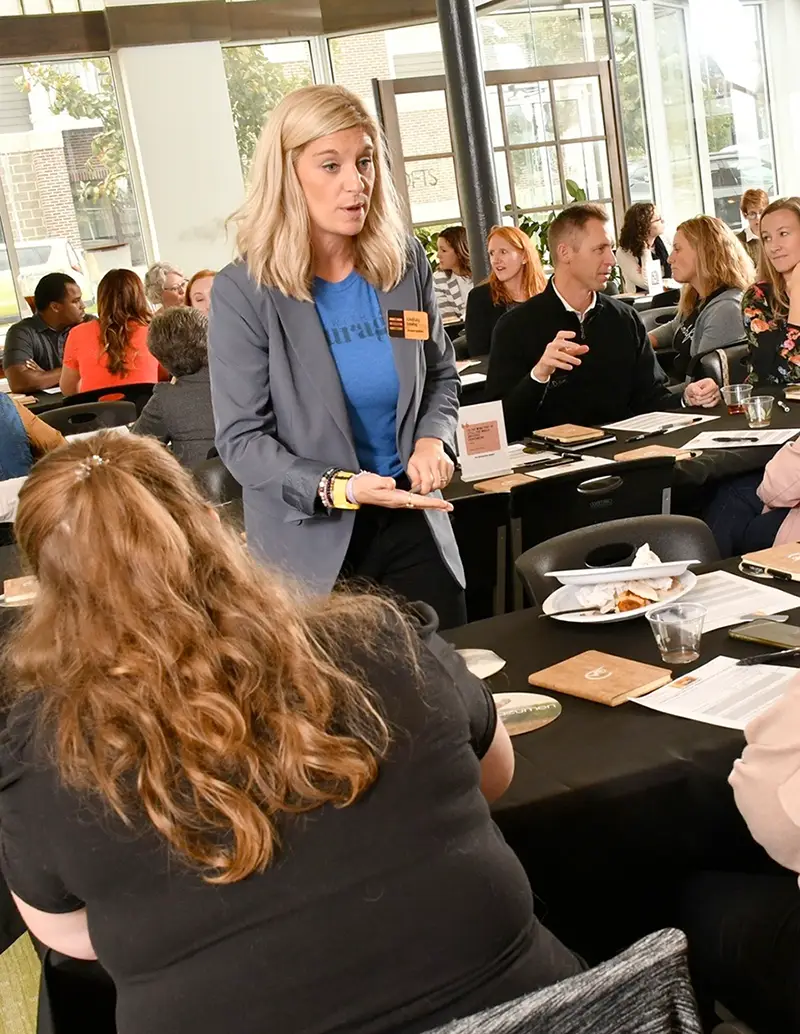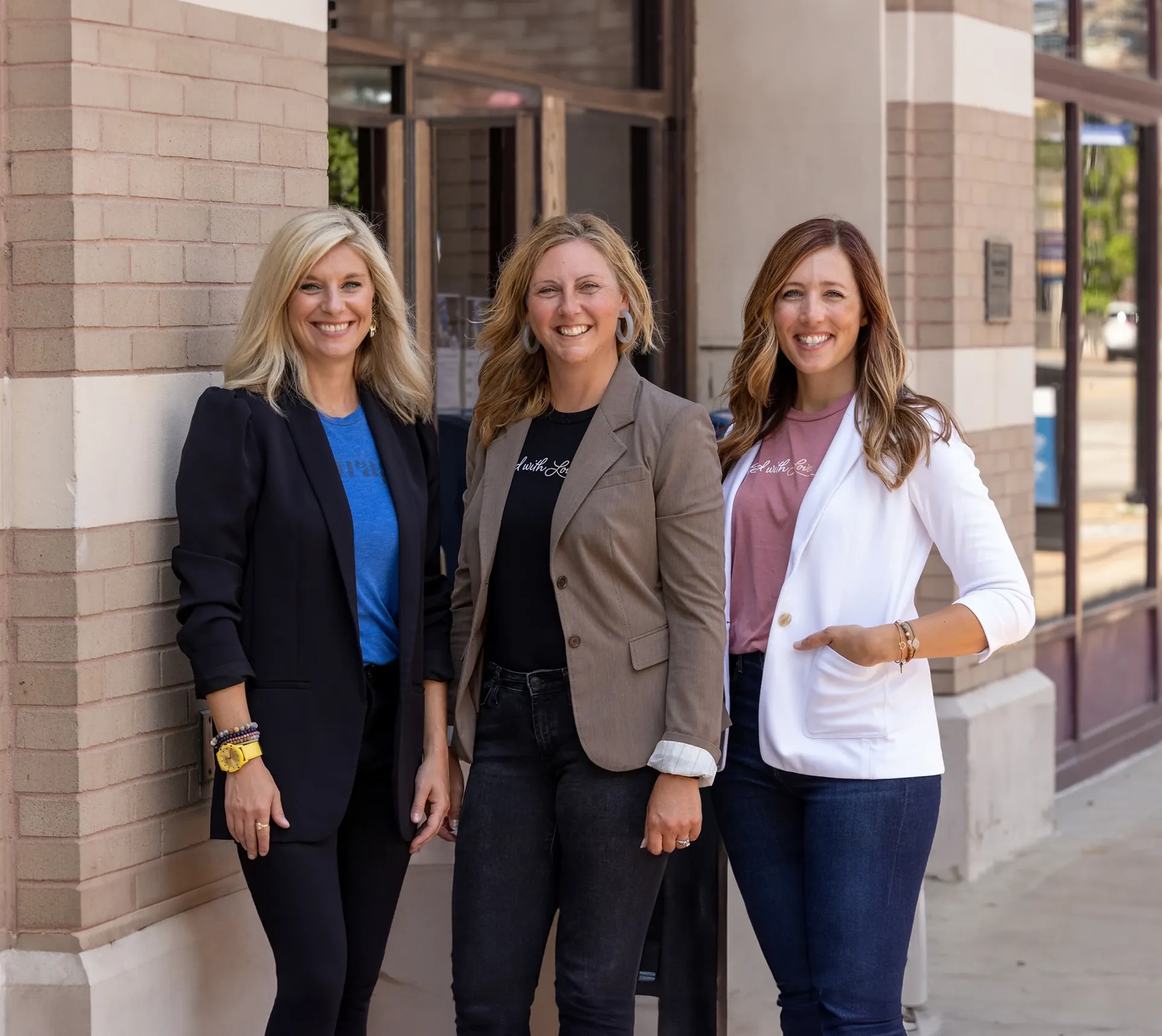In this series I am sharing my process for how I came back to fulfillment in work and life and moved from heart-less to heart-full connection, presence and engagement. For me, this has been the answer to my feelings of burnout. It wasn’t actually doing less, it was doing differently. More fully. More intentionally. More meaningfully. My calendar and lists didn’t change much, it was the way I did them that changed everything.
For those who missed Part 1 and Part 2, feel free to go back and read those first as this process works best in order. Part 1 was about resetting your expectations and vision and Part 2 about asking for help. In Part 3 you will be challenged to accept what you can’t control, step out of a victim mindset and take responsibility for creating the fulfillment and peace that you desire.
There are times when things aren’t what we want them to be, and the harder we try to make changes or resist what’s happening, the worse we feel. This is when we are called to slow down and go deeper. You will notice that the steps required get more and more challenging as we go along. Moving from a place of blame and excuses, into a place of full responsibility is something few are willing to do. The reality is, if you want fulfillment in life and work, it’s up to you to find it and make it happen for yourself. Another challenging reality is that if you truly desire fulfillment in life and work, then no matter what your circumstances and how challenging your life or work, it is available to you. Even if nothing else changes, you can choose fulfillment and peace. The following are steps that help us get to that place.
Accept the struggle
So many of us spend time resisting what is happening…hoping for what was or what will be, blaming or complaining. This wastes our energy. What is just is. The sooner we acknowledge and accept the present situation and how we are feeling about it, the sooner we can find a path forward. When I was a freshman in college, I lost my grandma…one of my favorite people in the world who was like a second mom to me. Piled on top of that I was reconnecting with my dad who I hadn’t seen in a long time, I was learning to adjust to being on my own, people in the home I left behind were going through some very challenging issues and I wasn’t present, and my relationship with my boyfriend was volatile.
Instead of acknowledging all of this hardship and how I felt about it, I avoided it all by staying busy…mostly working and partying more. I wouldn’t allow myself to sit still and feel anything. My sadness turned to anger. By the end of that semester I had a 1.9 GPA and a lot of strained or broken relationships. I blamed everyone else for the situation I was in, including my grandma for dying. The people around me were tired of my complaining and anger. When I was alone I felt deep shame for the choices I had made, especially skipping class and the way I hurt others. I fell into darkness, and gave up hope. I was completely stuck and couldn’t see a path forward. Lucky for me, my mom and a close friend loved me enough to say the hard thing, “You are better than this. You have choices here and you need to get help.”
When we are deep in these difficult situations, sometimes we can’t see our own way out. We need someone else to help us with a path forward…but the last thing we want to do is let someone in. I know…being open and vulnerable is very hard for me…at that time, it was almost impossible. I was an all or nothing kind of person and trust had been broken so many times by people close to me I was in a pattern of shutting down and shutting people out from the start. I had a choice, I could stay stuck in the darkness and let it all fall apart, or I could face the reality of where I was and make a plan to move forward. My therapist, mom and my friend helped me do just that using the following framework: GET PRESENT -> FOCUS ON WHAT YOU CAN CONTROL -> IDENTIFY THE LESSONS
I was so focused on the past and wishing things could be different. I was denying the reality of my situation and abdicating responsibility for it by blaming everyone else. My therapist helped me get present by reflecting the facts without emotion and helping me look at my situation as an objective 3rd party. I was where I was. That’s it. I couldn’t change it. Facing this reality allowed me to grieve the loss of my grandma, process through the shame I had related to the decisions I’d made, and allowed me to let go of what I could not control.
This process cleared the way for me to refocus on what I could control. I saw new choices and
my situation in a whole new way. Not everything was lost. I didn’t have to be a victim. I had agency and an opportunity to make things right if I chose to do that. My therapist helped me make a plan for moving forward to make amends with those I had hurt, get my grades back on track, and find new, healthier ways of coping and continuing to process all that I was going through. This was the hardest step for me. It was so much easier to stay stuck in the darkness of blaming others and being angry than to take responsibility for moving forward. It was easier to focus on others than on myself. It was hard to let go of what I couldn’t control. This is where most of us get stuck and hold ourselves back from coming back to fulfillment in life and work.
Once I had made some progress and had some time and space from the situation, I was able to reflect back on the lessons I learned. What I would and would not do next time I faced a similar situation. I saw myself in a new way. I identified unhealthy patterns which created an opportunity to break them. I became stronger and more aware. When we have the courage to accept the struggle, to become aware of our reality and to release what we can’t control, then we can move into the final step that help us bring fulfillment back to our life and work.
Adjust your heart and mind
Just because we are able to see things differently after accepting the struggle, doesn’t mean the struggle is over or gone. Even when our circumstances don’t change, we have the power to change who we are and how we feel. That’s what this step is all about. There are 3 key practices that help me make this shift: PRACTICE GRATITUDE | SEE AND CELEBRATE PROGRESS | HONOR THE TASK
As we move into this step, we’ve been spending a lot of time focused on the difficulties of our situation. How we feel, what we can’t control, etc. Once we have accepted and processed through that (no, we can’t skip over that part) then we need to shift our heart and our mind back to the good. Even when it’s 99% difficult and dark, there is always something good and light. I don’t mean toxic positivity, I mean finding the good again and holding both. Most of us think in terms of all or nothing, black or white. Something is good or bad. This is not true and it’s an unhealthy way of viewing any situation or person for that matter. Good and bad, light and dark, they coexist. Until we can see that we will suffer more than we need to.
Find what is good in any moment and be grateful for it…even if it’s simply that you are breathing, because for some that is not a reality. Developing a gratitude practice helps us find fulfillment and meaning where we didn’t see it before. It helps us focus on the small, simple things that can bring us joy and contentment. Starting your day by listing, on paper or in your head, 3 things you are grateful for will change who you are and how you see the world. It’s a fact. It is a practice that is simple, but not easy. Being grateful is countercultural. We are constantly told we aren’t enough and don’t have enough…we are fed lies all day everyday. It takes serious effort on our part to overcome that lie.
Next, we need to see and celebrate progress. At the end of each day, instead of reflecting on all the things we didn’t get done, didn’t go our way or we didn’t get right, spend time writing down or thinking about 3 things that went well. Even if they were unanticipated good things (which most are), celebrate them. Maybe you smiled at a stranger, told someone thank you, someone gave you a an unexpected hug, you held back your anger and reacted in a meeting in a calm manner. Whatever it is about what you did or who you were that day, celebrate it! This reflection practice to celebrate the good also helps you see that even in the toughest circumstances, there is good and an opportunity to grow.
Goodness + Progress = Fulfillment
The last practice in adjusting our heart and mind is to honor each task that we face. So much of what we do each day is half-hearted. We aren’t fully present for it and we do it mindlessly. Many of my clients are executives and mothers. They try to fit an impossible amount of tasks into a day and to please everyone, only to wind up feeling depleted and as if they do nothing well. They rush through it all. You can regain a sense of fulfillment when you honor each task. Even something like doing the laundry. This takes time. When you get present and remember that you are doing this so that your family is clean and cared for, and you fold each piece of clothing with love, you will feel accomplished and fulfilled. Try it!
Remember your why, or consider doing your task in honor of someone else. In my day I often keep in mind a friend who is sick or hurting. When I am faced with doing a task I don’t enjoy or I’m feeling unfulfilled, I dedicate the task to that person. This practice encourages me to remember that all contributions matter, big and small, and challenges me to do my best no matter how insignificant I think something might be. Remember you get to choose your perspective even if you can’t choose your circumstances. Here are two of my favorite lines from Viktor Frankl’s book Man’s Search for Meaning that remind me of this fact:
“Everything can be taken from a man but one thing: the last of the human freedoms—to choose one’s attitude in any given set of circumstances, to choose one’s own way.”
“When we are no longer able to change a situation, we are challenged to change ourselves.”
Reframe the challenges and interruptions you face. They are opportunities to learn, grow and develop if you let them be and work this process. Celebrate small wins, micro shifts, and notice the change in you. Even if nothing changes, you can change…and that, my friend, changes everything. This allows us to own our ability to come back to fulfillment in life and work.
We enjoy being a safe space for many. Reach out to The Restoration Project team at info@the-restorationproject.com and let’s explore how we can support you!

Written by: Lindsay Leahy, Dream Builder at The Restoration Project


